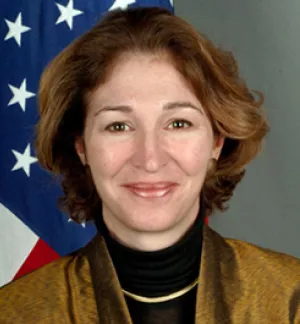A joint sting operation by the CIA and officials from the Republic of Georgia foiled an attempt by a Russian man to sell nuclear-bomb-grade uranium on the black market last summer. This event, only made public in January, was the latest in a series of alarming incidents that remind us of the severity of the threat posed by nuclear terrorism.
To build a nuclear weapon, terrorists must acquire materials from a state. National governments are unlikely to cooperate with terrorists because they fear retaliation from the victim of such an attack and its allies, but rogue scientists, generals or other individuals can work with criminal networks to deliver nuclear weapons to the highest bidder. To counter this danger, we should make the illegal transfer of nuclear materials a crime against humanity triable by international tribunals and by national courts in every country.
Current efforts to close down the nuclear black market have an Achilles' heel — certain states will not cooperate and will even protect nuclear criminals. For instance, A.Q. Khan, Pakistan's "father of the bomb," lives comfortably under house arrest; U.S. officials have not been allowed even to interrogate him. Pakistan's government is too frightened of a domestic backlash to act harshly against a national hero. Globally, of the dozens suspected of involvement in his network, only three have been successfully prosecuted.
During the Cold War, the United States used deterrence to avert Armageddon; the Soviet Union understood that aggression, even of a conventional nature, would carry too high a price. This old wisdom offers new hope; the United States should actively deter individuals who trade in nuclear materials by making the costs of such behavior unacceptably high.
Making nuclear transfer a crime against humanity captures the enormity of the offense and would dramatically increase the cost of getting caught. Nuclear transfer threatens the lives of millions of people. It merits a place in infamy alongside genocide and other evils. Creating a nuclear transfer taboo would strip away feigned protestations of innocence and illusions of a victimless crime. It would stigmatize black-market financiers and other facilitators of nuclear transfers as the ultimate merchants of death.
In addition to highlighting the dangers of this action, making nuclear transfer a crime against humanity would greatly expand opportunities for prosecution, denying national governments the ability to shelter these criminals.
The International Criminal Court has jurisdiction over crimes against humanity. The inclusion of nuclear transfer as such a crime could be confirmed at the next review conference, in 2009. The ICC could then indict and prosecute those suspected of such acts. Even if the United States cannot bring itself to join the ICC, it could work with allies to empower the ICC to act, just as the Bush administration has done on Darfur.
Similarly, as a matter of international law, crimes against humanity are subject to universal jurisdiction. That means that any nation, including the United States, could prosecute nuclear traders anywhere in the world. National governments can pass statutes confirming such jurisdiction in their courts.
Finally, the U.N. Security Council could pass a Chapter VII resolution urging a prosecutor to investigate these cases or even establish a special tribunal to prosecute those suspected of nuclear transfer. A tribunal could be a fallback if efforts to incorporate nuclear transfer into the ICC charter were unsuccessful.
This initiative would make international law work as a tool of American national security strategy rather than as a constraint on it. Failing states would no longer provide safe haven for rogue individuals. The potential costs of nuclear transfer for criminal networks would clearly exceed its potential rewards. It would be multilateralism and international law at its best: hard-edged tools to further American and global interests.
Most important, it is the only way to overcome a real problem. The status quo — trusting nondemocratic states to safeguard U.S. security interests by cracking down on their criminal networks — has failed. The convention on genocide was signed after the Holocaust. This time, we should not wait until after the fact to act.
Anne-Marie Slaughter is dean of Princeton University's Woodrow Wilson School of Public and International Affairs and a co-director of the Princeton Project on National Security. Thomas Wright is senior researcher for the Princeton Project on National Security.
Wright, Thomas and Anne-Marie Slaughter. “Punishment to Fit the Nuclear Crime.” The Washington Post, March 2, 2007







